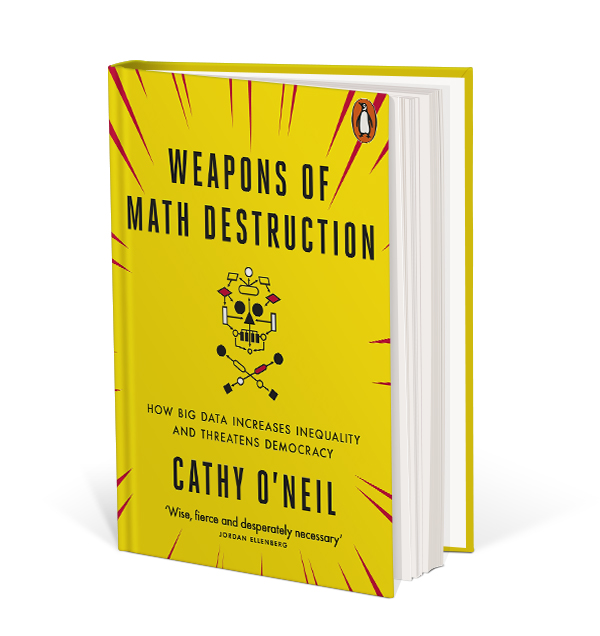
Weapons of Math Destruction: How Big Data Increases Inequality and Threatens Democracy
Cathy O’Neil
After earning a PhD in math, a tenure-track teaching position at Barnard and, eventually, a lucrative gig as a Wall Street “quant,” Cathy O’Neil believed in the gospel of Big Data. The 2008 financial crisis changed all that. “The privileged,” O’Neil realized, “are processed more by people, the masses by machines.”
In a world gaga over Big Data, her book illustrates how Big Data in fields such as education, the criminal justice system, the workplace, as well as the insurance and advertising industries increases inequality and undermines democracy. In the workplace, for instance, efficiency (which can be measured in numbers) is valued over quality (which cannot). Similarly, in the area of criminal justice, arrests are easily measured while the trust built by community policing — not so much. In her own professional experience on Wall Street, O’Neil witnessed a blind faith in numbers and “a false sense of security leading to widespread use of imperfect models, self-serving definitions of success, and growing feedback loops. Those who objected are regarded as nostalgic Luddites.”
But all is not lost. The final chapter offers inspiring examples of how Big Data can be used to improve society: how a mathematical model can be used, for instance, to predict victims of child abuse; that model then provides information to humans who can step in to provide resources and tools to help these families avoid a cycle of abuse.
This book is part of the 2017 Berkeley Summer Reading List. Stay tuned for more weekly posts!